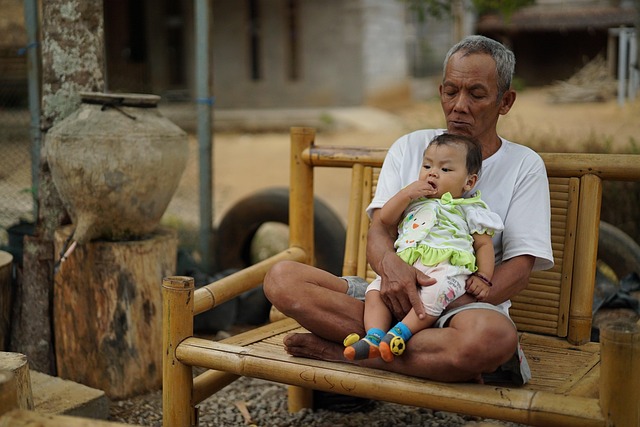Grandparent custody disputes are legal battles over visitation rights, balancing family relationships with a child's best interests. Courts consider factors like the grandparent-child bond, parental fitness, and cultural backgrounds to decide arrangements. These proceedings ensure grandparents' rights while maintaining the child's stability. Post-dispute agreements outline visitations, fostering connections and support for grandchildren's well-being.
Understanding grandparent rights is crucial in navigating complex family dynamics. This article delves into the legal framework surrounding these rights, focusing on grandparent custody disputes. We explore key aspects such as custody disputes between grandparents and parents, factors courts consider, legal advocacy strategies, and post-custody arrangements. By understanding these legalities, families can better manage access, visits, and support for beloved grandparents. Discover insights into grandparent custody, empowering you to make informed decisions.
- Legal Framework for Grandparent Rights: An Overview
- Custody Disputes Arising Between Grandparents and Parents
- Factors Courts Consider When Deciding Grandparent Custody
- Legal Proceedings and Advocacy for Grandparent Rights
- Post-Custody Arrangements: Visits, Access, and Support
Legal Framework for Grandparent Rights: An Overview

In many countries, grandparent rights are protected by a robust legal framework designed to safeguard the unique bond between grandparents and their grandchildren. This framework varies from nation to nation, reflecting diverse cultural perspectives on family structures and relationships. At its core, the law aims to balance the interests of both the parents and the grandparents, especially in cases of divorce, separation, or other familial changes that may lead to grandparent custody disputes.
Grandparent rights often center around visitation, custody, and access to grandchildren. Legal precedents have established guidelines for what constitutes reasonable and regular contact between grandparents and their grandchildren, ensuring these relationships remain healthy and meaningful. In grandparent custody disputes, courts typically consider factors such as the child’s best interests, the quality of the grandparent-grandchild relationship, and the ability of each party to provide a stable and nurturing environment. This careful evaluation helps in making informed decisions that honor both family ties and legal obligations.
Custody Disputes Arising Between Grandparents and Parents

In many cases, grandparent rights are often a subject of debate and can lead to complex legal situations, especially when there’s a custody dispute between grandparents and parents. Grandparent custody disputes arise when a grandparent seeks legal access or visitation rights to their grandchildren, opposing the decisions made by the child’s parents. These conflicts can be particularly challenging because they involve balancing family dynamics with the best interests of the child.
When such disputes occur, it’s crucial to understand that courts typically consider several factors to determine custody. These include the grandparent’s relationship with the grandchild, the parent’s ability to care for the child, and the overall stability and well-being of the child. Legal proceedings can become intricate as they delve into these aspects, often requiring both parties to present evidence and arguments to advocate for their respective positions on grandparent rights.
Factors Courts Consider When Deciding Grandparent Custody

When courts are faced with grandparent custody disputes, they consider a multitude of factors to determine what arrangement is in the best interest of the child. These include the quality of the relationship between the grandparents and the child, both before and during the dispute, as well as the stability and suitability of the proposed living environment. The court also assesses the parents’ willingness to facilitate a healthy relationship between the grandparents and the child, and considers any historical or ongoing issues that might impact the grandparent’s ability to provide care, such as criminal records or substance abuse problems.
Additionally, courts evaluate the child’s wishes, if they are of a sufficient age and maturity to express them, and may also take into account the cultural and religious backgrounds of the family, especially in cases where traditional grandparent-grandchild relationships hold significant value. Other relevant factors include the financial resources and capacity of the grandparents to support the child, as well as any history of medical or emotional issues within the family that could affect the child’s welfare.
Legal Proceedings and Advocacy for Grandparent Rights

In cases where grandparent rights are contested, legal proceedings often become necessary to advocate for and protect these rights. Grandparent custody disputes can arise when a parent objects to or restricts a grandparent’s access to their grandchildren. If both parents agree to grant grandparental rights, it may be a straightforward process. However, if one parent opposes it, the matter could end up in court. Legal advocacy ensures that grandparents’ rights are upheld according to the law and that all parties involved understand their legal obligations.
During these proceedings, a judge will consider various factors, such as the best interests of the child, the grandparent’s relationship with the grandchild, and any evidence of parental unfitness or neglect. Grandparents seeking custody or significant visitation rights may need to gather and present relevant documentation, witness testimonies, and legal arguments to support their case. Effective advocacy can lead to a favorable outcome, allowing grandparents to maintain a meaningful role in their grandchildren’s lives.
Post-Custody Arrangements: Visits, Access, and Support

After a custody dispute or an unexpected change in family dynamics, grandparent rights and obligations regarding their grandchildren’s well-being become paramount. Post-custody arrangements play a crucial role in ensuring a harmonious relationship between grandparents and their grandchildren, especially when direct physical custody is not granted to them. Visits and access are essential components of these arrangements, allowing grandparents to maintain a meaningful connection with their grandchildren while respecting the primary caregiver’s role.
In many cases, grandparent rights include the legal right to regular visitation and even shared physical custody under specific circumstances. The terms of these agreements can vary widely depending on the jurisdiction and the unique needs of each family. During visitation periods, grandparents are expected to provide a safe, nurturing environment for their grandchildren, fostering a sense of stability and love. Additionally, in some situations, grandparents may be legally obligated to offer financial support to their grandchildren, especially if they have been granted custody or significant visitation rights as part of a grandparent custody dispute resolution.






